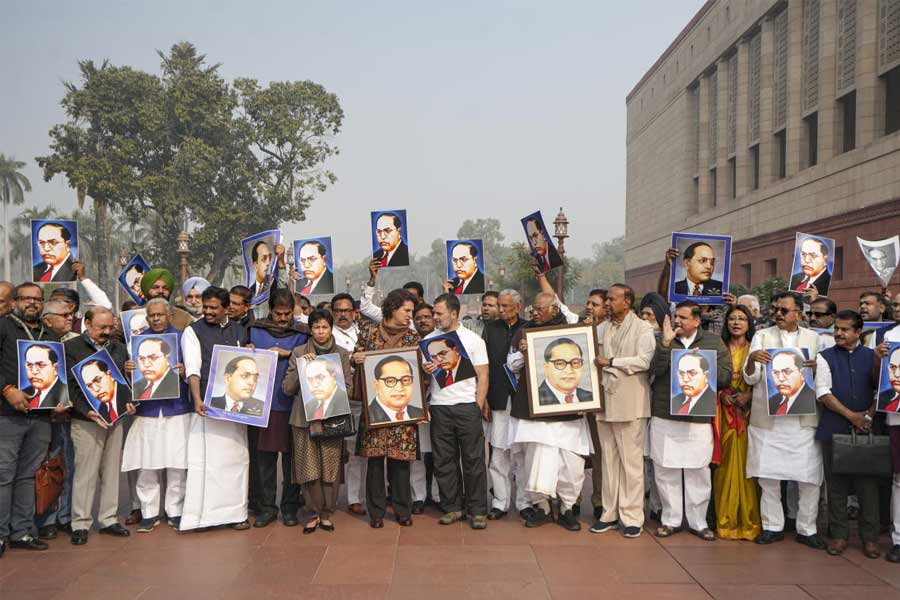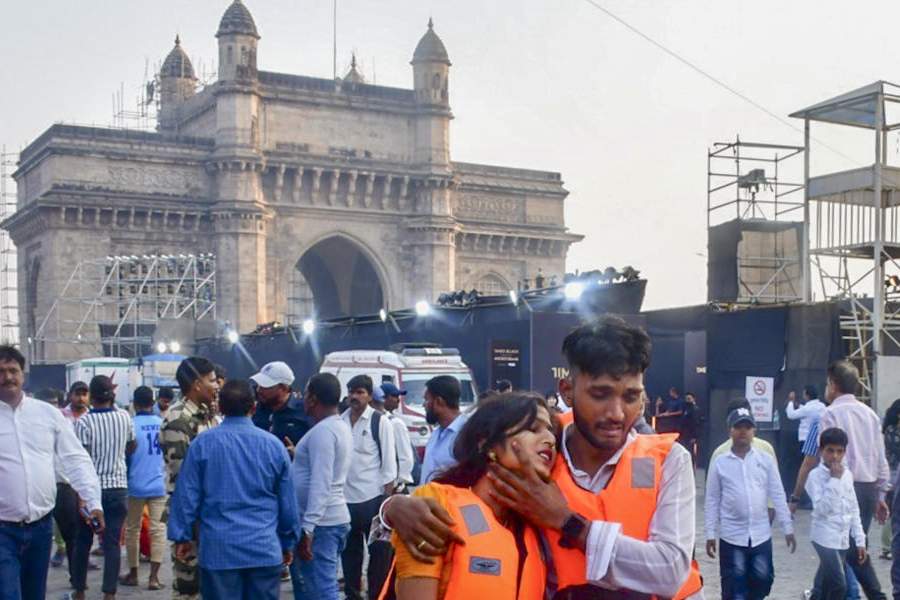 Thursday, 19 December 2024
Thursday, 19 December 2024
 Thursday, 19 December 2024
Thursday, 19 December 2024
The Congress has proposed the names of its Wayanad MP Priyanka Gandhi, Rajya Sabha Manish Tewari, Randeep Surjewala and Lohardanga MP Sukhdeo Bhagat as members of the Joint Parliamentary Committee (JPC) to examine the bills on simultaneous elections while Trinamul proposed the names of its Lok Sabha member Kalyan Banerjee and his Rajya Sabha counterpart Saket Gokhale on Wednesday.
Shrikant Shinde of the Shiv Sena, Sanjay Jha of the JD(U), and T M Selvaganapathi and P Wilson of the DMK are other members of the JPC, according to the Press Trust of India.
The BJP is considering the names of its seasoned MPs Ravi Shankar Prasad and Nishikant Dubey as nominees for the parliamentary panel.
The two bills that lay down the mechanism for holding Lok Sabha and assembly elections together were introduced in the Lower House on Tuesday. After brickbats from the Opposition, Union minister of home Amit Shah announced on the floor of the Parliament the One Nation One Poll Bill would be sent to a JPC for a detailed examination and wider consultations.
Lok Sabha has to first adopt a resolution to refer the draft laws to the joint panel following which it will be constituted by the Speaker.
Other parties are also in the process of naming their members on the proposed panel.

What is a JPC?
A JPC is an ad-hoc body, set up for a specific reason and duration. The details regarding membership and subjects are also decided by Parliament.
A maximum of 31 MPs (21 from Lok Sabha and 10 from Rajya Sabha) will form the JPC to examine simultaneous polls and it will have a duration of three months, according to reports.
Some prominent JPCs that have been formed in India’s contemporary political history were to investigate Bofors Contracts, enquire into irregularities in securities and banking transactions; on stock-market scam (both Harshad Mehta and Ketan Parekh scam of 2001), on pesticide residues in and safety standards for soft drinks (2003), on the alleged 2G spectrum allocation scam and bribery allegations in VVIP chopper acquisitions.
How effective are JPCs?
According to the Parliamentary Research Services, “JPC recommendations have persuasive value but the committee cannot force the government to take any action on the basis of its report…The government is required to report on the follow-up action taken on the basis of the recommendations of the JPC and other committees. The committees then submit ‘Action Taken Reports’ in Parliament on the basis of the government’s reply. These reports can be discussed in Parliament and the government can be questioned on the basis of the same.”
The JPC into the Bofors case saw en masse boycott of Opposition members. In the stock market scam JPCs, recommendations were not adhered to. It was only in the soft drinks pesticide JPC that the Parliament accepted a few recommendations. The JPC report on the 2G scam, which had seven dissenting members, claimed, “Prime Minister Manmohan Singh was misled by A. Raja.”
In the Modi era, the Opposition had asked for JPCs to probe purchase of Rafale aircrafts and the Hindenburg charge against Adani. But it was refuted.







